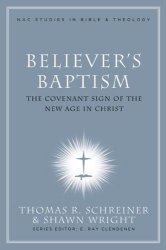 –continuing from part 3.
–continuing from part 3.
Here is a fourth, and most definitive basis for “spiritualizing” the land promise….
4) The connection between land and rest
To start, read these verses in Hebrews 4.
Therefore, while the promise of entering his rest still stands, let us fear lest any of you should seem to have failed to reach it. For good news came to us just as to them, but the message they heard did not benefit them, because they were not united by faith with those who listened. For we who have believed enter that rest, as he has said, “As I swore in my wrath,’They shall not enter my rest,” although his works were finished from the foundation of the world. For he has somewhere spoken of the seventh day in this way: “And God rested on the seventh day from all his works.” And again in this passage he said, “They shall not enter my rest.” Since therefore it remains for some to enter it, and those who formerly received the good news failed to enter because of disobedience, again he appoints a certain day, “Today,” saying through David so long afterward, in the words already quoted, “Today, if you hear his voice,do not harden your hearts.” For if Joshua had given them rest, God would not have spoken of another day later on. So then, there remains a Sabbath rest for the people of God, for whoever has entered God’s rest has also rested from his works as God did from his. Let us therefore strive to enter that rest, so that no one may fall by the same sort of disobedience. (Heb. 4:1-11)
The bolded section points out that the rest offered to the Israelites is experienced by us who believe. And the quote in that section, is taken from Ps. 95:
Today, if you hear his voice, do not harden your hearts, as at Meribah, as on the day at Massah in the wilderness, when your fathers put me to the test and put me to the proof, though they had seen my work. For forty years I loathed that generation and said, “They are a people who go astray in their heart, and they have not known my ways.” Therefore I swore in my wrath, “They shall not enter my rest.” (Ps. 95:7b-11)
So again, it is clear, that the quote “They shall not enter my rest” is taken from Ps. 95 and quoted in Heb. 4. but now, notice Numbers 14. Keep in mind that even in Ps. 95 that phrase is in quotation marks. Ps. 95 is reminding us of what God said back in Numbers 14:
But truly, as I live… none of the men who have seen my glory and my signs that I did in Egypt and in the wilderness, and yet have put me to the test these ten times and have not obeyed my voice, shall see the land that I swore to give to their fathers. And none of those who despised me shall see it…. “As I live, declares the LORD,… not one shall come into the land where I swore that I would make you dwell, except Caleb the son of Jephunneh and Joshua the son of Nun. (Num. 14:21a, 22-23, 28b, 30)
And a summary of this passage is mentioned in Deut. 1 where it is specified that God “swore” and in anger made this pronouncement:
And the LORD heard your words and was angered, and he swore, “Not one of these men of this evil generation shall see the good land that I swore to give to your fathers, except Caleb the son of Jephunneh. He shall see it, and to him and to his children I will give the land on which he has trodden, because he has wholly followed the LORD!” (Deut. 1:34-35)
In the above two passages, I hope you see that God is saying these people won’t enter the land. Yet in Ps. 95 and Hebrews 4, it is quoted that God said they won’t enter His rest. There is an explicit connection between the land, and the concept of rest. See also this quote below:
…for you have not as yet come to the rest and to the inheritance that the LORD your God is giving you. But when you go over the Jordan and live in the land that the LORD your God is giving you to inherit, and when he gives you rest from all your enemies around, so that you live in safety,… (Deut 12:9-10)
Here again, the rest, the inheritance, is living in the land God gives to Israel. Entering the land, is entering rest.
Now since Heb. 3 and 4 clearly make the rest a spiritual reality, the land becomes spiritual too. Entering the rest is something believers have done, and the unbelieving Israelites did not do. If we are experiencing spiritual rest, a spiritual “Sabbath rest”, we are enjoying the spiritual reality the land pointed to. All believers, Gentile or Jew, experience the reality the land pointed to — namely, fellowship with God and enjoyment of His blessings.
Ultimately, Jew and Gentile will live with God on the New Earth, the New Promised Land. With this thought, let’s jump one step further.
Keeping the Promised Land in Perspective
The promised land of Canaan, has to be kept in perspective with other Biblical lands: namely the paradise that was lost, and the future paradise that’s coming. Eden was a place of fellowship with God and enjoyment of His many blessings. The New Earth, and the New Jerusalem, will be as well. In Eden, man was to obey God and fulfill a special calling, in Canaan, Israel was to do the same. Today, each believer enjoys special fellowship with the Holy Spirit and longs for the future fulfillment of all God’s promises in the New Paradise where communion with God and obedience to His calling will be eternally experienced.
Just as Canaan was to be entered by faith, the “Sabbath rest” experienced by believers must be entered by faith as well. And entrance into God’s future kingdom of eternal rest and joy in the New Earth is only entered by faith. The road to Canaan started with Passover and crossing the Red Sea. And interestingly, Passover is a clear parallel with Christ’s death and our salvation, and 1 Cor. 10:1-4 connects the crossing of the Red Sea with baptism. Then the wilderness wanderings required faith and endurance, and the many trials and tribulations that await believers require the same. Those same wanderings included a partaking of a miraculous food and drink, and again 1 Cor. 10-11 would indicate that the Lord’s Supper parallels that experience. Ultimately, the Jordan was crossed by faith, and God’s rest was entered. One day, we’ll cross the Jordan and enter Heaven’s bliss.
Do any old-time hymns sound appropriate right about now? Believers of old have long compared the Promised Land with Heaven, and there is adequate Scriptural basis for this comparison.
In the next (and final) post in this series, I hope to show some ramifications of understanding the promise of the land from this redemptive-historical perspective.
 Part 12 in a
Part 12 in a  A quick update here.
A quick update here. 